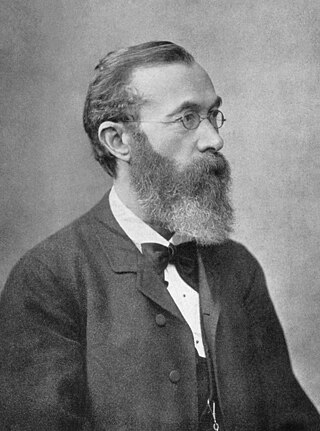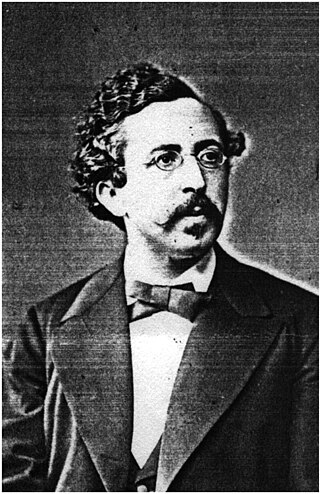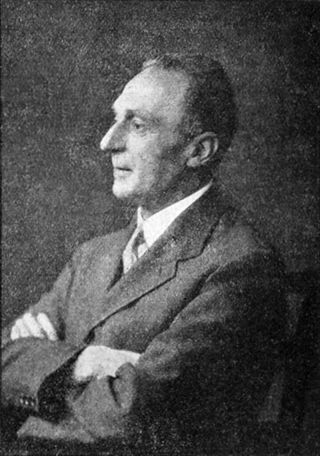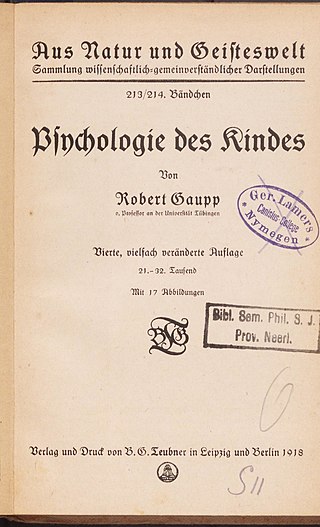
Wilhelm Maximilian Wundt was a German physiologist, philosopher, and professor, one of the fathers of modern psychology. Wundt, who distinguished psychology as a science from philosophy and biology, was the first person ever to call himself a psychologist.

Franz Clemens Honoratus Hermann Josef Brentano was a German philosopher and psychologist. His 1874 Psychology from an Empirical Standpoint, considered his magnum opus, is credited with having reintroduced the medieval scholastic concept of intentionality into contemporary philosophy.

The uncanny valley effect is a hypothesized psychological and aesthetic relation between an object's degree of resemblance to a human being and the emotional response to the object. Examples of the phenomenon exist among robotics, 3D computer animations and lifelike dolls. The increasing prevalence of digital technologies has propagated discussions and citations of the "valley"; such conversation has enhanced the construct's verisimilitude. The uncanny valley hypothesis predicts that an entity appearing almost human will risk eliciting eerie feelings in viewers.

Hermann Cohen was a German Jewish philosopher, one of the founders of the Marburg school of neo-Kantianism, and he is often held to be "probably the most important Jewish philosopher of the nineteenth century".

Ernst Alfred Cassirer was a German philosopher. Trained within the Neo-Kantian Marburg School, he initially followed his mentor Hermann Cohen in attempting to supply an idealistic philosophy of science.

Wilhelm Dilthey was a German historian, psychologist, sociologist, and hermeneutic philosopher, who held G. W. F. Hegel's Chair in Philosophy at the University of Berlin. As a polymathic philosopher, working in a modern research university, Dilthey's research interests revolved around questions of scientific methodology, historical evidence and history's status as a science. He could be considered an empiricist, in contrast to the idealism prevalent in Germany at the time, but his account of what constitutes the empirical and experiential differs from British empiricism and positivism in its central epistemological and ontological assumptions, which are drawn from German literary and philosophical traditions.
Adolf Bernhard Philipp Reinach was a German philosopher, phenomenologist from the Munich phenomenology school and law theorist.

Manès Sperber was an Austrian-French novelist, essayist and psychologist. He also wrote under the pseudonyms Jan Heger and N.A. Menlos.

Hans Bender was a German lecturer on the subject of parapsychology, who was also responsible for establishing the parapsychological institute Institut für Grenzgebiete der Psychologie und Psychohygiene in Freiburg. For many years his pipe smoking, contemplative figure was synonymous with German parapsychology. He was an investigator of 'unusual human experience', e.g. poltergeists and clairvoyants. One of his most famous cases was the Rosenheim Poltergeist.

Otto Selz was a German psychologist from Munich, Bavaria, who formulated the first non-associationist theory of thinking, in 1913. Influenced by the German phenomenological tradition, Selz used the method of introspection, but unlike his predecessors, his theory developed without the use of images and associations. Wilhelm Wundt used the method of introspection in the 1880s, but thought that higher-level mental processes could not be studied in the scientific laboratory.

The uncanny is the psychological experience of an event or individual being not simply mysterious, but rather frightening in a way that feels oddly familiar. This phenomenon is used to describe incidents where a familiar thing or event is encountered in an unsettling, eerie, or taboo context.

Robert Saudek was a Czech-born graphologist, diplomat, and writer of novels, stories, poems and plays. He had considerable influence on the content and standing of graphology worldwide. He also published numerous articles in many languages in periodicals as diverse as The Listener, Zeitschrift für Menschenkenntnis and the Journal of Social Psychology. He also founded the professional graphology society in the Netherlands. He also started two academic periodicals: one in Dutch and the other in English. Many graphologists worldwide today use Saudek’s work without knowing the origin.

Max Richard Constantin Verworn was a German physiologist who was a native of Berlin.

William Thierry Preyer was an English-born physiologist who worked in Germany.
Otto Lipmann was a German psychologist, an expert in vocational guidance, and one of the pioneers in the use of counseling for the selection of a profession.
Willy Moog was a German philosopher and educator.
This is a list of writings published by Sigmund Freud. Books are either linked or in italics.
Carl Albrecht was a German psychologist, psychotherapist and physician, who developed a new method of meditation based on autogenic training, and who was known for his psychological research on mystical consciousness.

Psychologie des Kindes is a book written by the German psychiatrist and neurologist Robert Gaupp. It was first published in 1907 by the publishing house B.G. Teubner Leipzig Berlin. There were a total of four versions of the book, the last revised version appearing in print in 1917.

Psychologie und Schule is a German book published in 1920 by the German author Otto Lipmann. It was published by the Julius Beltz publishing company and is book 47 of the series Aktuelle Fragen aus der Pädagogik der Gegenwart, issued by Max Reiniger. The book discusses the field of use of psychology in the school environment. By writing it Lipmann wanted to teach the readers about the development of modern psychology in 1920 and its relation to pedagogy. It incorporates topics with regard to education that are also dealt with in the 21st century and gives insights into the progress made in the 20th century.















